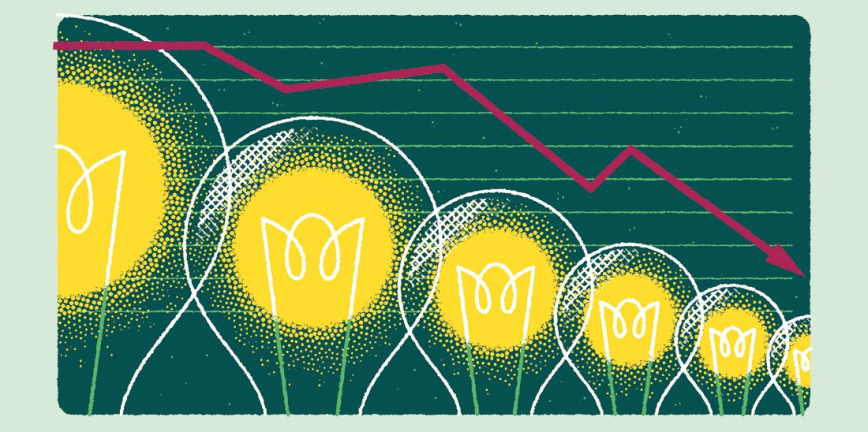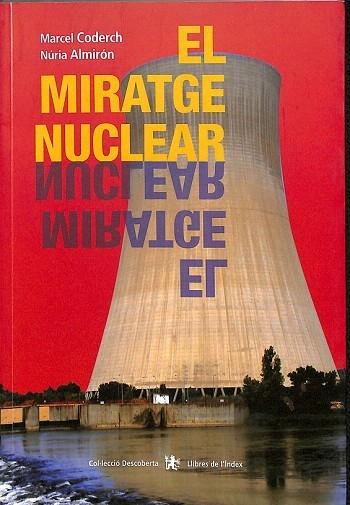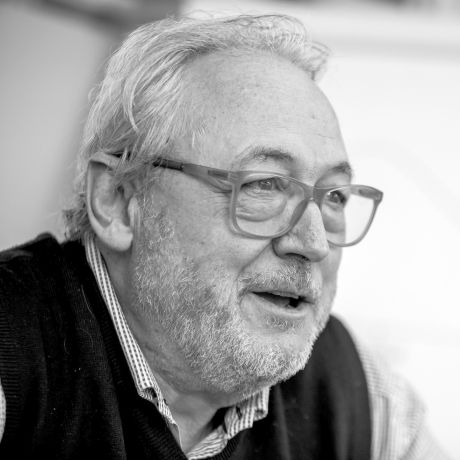The end of the era of abundance
A new energy model for the city
- Dossier
- Jan 23
- 9 mins

The economic, social and political model developed over the last 150 years simply cannot be sustained for physical, geological and environmental reasons. The challenge facing us today is therefore to imagine a different future. Global energy consumption must be reduced to a level that is as sustainable as possible and economic growth, at least as we have known and measured it up to now, must be reversed.
“The idea of the future being different from the past is so repugnant to our conventional modes of thought that we, most of us, offer a great resistance to acting on it in practice.” J. M. Keynes (1937)
Months ago, the G7’s enfant terrible, Emmanuel Macron, warned French citizens of “the end of abundance and carelessness”, telling them that “we can no longer take previous assumptions for granted” and adding that “we are at a turning point” at which “the duty of those in power is to speak to the population frankly and clearly, without catastrophising”. Yet neither he nor any other government has heeded this advice, blaming the war in Ukraine for all the ills and energy shortages we are facing, as if the war were not just another indication of the tipping point we find ourselves at.
The deathly silence with which Macron’s words were met, and their subsequent oblivion, is just one more sign that the economic and political power circles do not want to accept and do not want to convey such a plain and devastating truth to the population: the economic, social and political model developed over the last 150 years simply cannot be sustained for physical, geological and environmental reasons. Consequently, the challenge of our time is to imagine a future different from the past, in which the fixation on continued and perennial economic growth is no longer the ultimate social objective, shared by virtually the entire ideological spectrum.
Conventional economists still endeavour to apply this strategy of “making the cake bigger”, in an attempt to dodge the fundamental social problem: the fair and equitable distribution of the benefits of collective efforts. A strategy that has indeed proven to work, if we disregard the huge social inequalities that have arisen between countries and within each country’s population. Now that it is becoming increasingly harder to make the cake bigger, the whole economic theory behind the era of abundance must also be revised, because this theory overlooks the fact that energy and material resources are limited.
Energy is the driving force of the economy
Raw materials cannot be obtained and transformed into goods and services without energy consumption. Humankind, from its origins until almost 150 years ago, had always lived on what it could muster in the form of crops and livestock, firewood, water or windmills, draught animals and sea or river transport, taking advantage of air currents, and also, lest we forget, human slavery. They were the only available sources of energy, which could sustain a human population of a few hundred million across the planet over tens of thousands of years.
All this changed in the mid-19th century with the discovery of fossil fuels, first coal, followed by oil and natural gas, and more recently nuclear energy, which also requires primary minerals. Evidently, these natural resources could be harnessed thanks to scientific and technological advances, but these advances could only emerge when the energy surplus generated social classes liberated from the manual labour of survival. This energy-knowledge virtuous circle is what has generated the exponential growth that can be seen in any chart showing the world population or energy consumption and, ultimately, the demographic and economic growth of the last 200 years. Energy is thus the fuel and lifeblood of our societies’ economies.
So-called renewable energies are not really renewable. Harvesting tools require increasingly scarce materials.
So-called renewable energies are not really renewable because, while the energy that comes from the sun is renewable (at least until the star dies), harvesting tools that convert this free energy into usable energy, be they wind turbines, solar cells, solar concentrators or hydraulic turbines, which require increasingly scarce materials, are not. However, the scientific and technological advances that have been achieved, and are likely to continue, cannot change the fundamental laws that govern the universe in which we live and that put limits on what is physically possible: essentially, the laws of thermodynamics.
And these fundamental laws have three basic principles. Firstly, energy is neither created nor destroyed, it is only transformed. Secondly, any energy conversion implies a loss of useful energy. And finally, the amount of useful energy in a closed system, such as the Earth, diminishes over time until it is depleted. These laws also govern climate change, the other side of the energy dilemma we are facing. Fossil energy is solar energy harvested by living organisms and stored in geologically remote times: a rich legacy that current and previous generations have enjoyed, and which is rapidly being frittered away, as if tomorrow and future generations do not matter.
When fossil fuels are burned, carbon dioxide extracted in ancient times is released back into the atmosphere, which in turn makes the planet’s temperature rise as a result of the greenhouse effect. Moreover, even if we were to find an energy source that did not generate any emissions or GHG emissions, it would also increase the planet’s temperature, because any energy generated on the planet, by whatever means, must eventually radiate into outer space in the form of heat, and that implies a rise in the planet’s temperature. If annual energy consumption were to continually increase by 2%, for example, the Earth’s surface and oceans would be boiling within a few centuries. These are strictly scientific calculations.
Faced with this dilemma, we can look at the future in two ways. If we need more and more energy to expand the economy and improve humankind’s standard of living, where will it come from? Or, alternatively, we can ask ourselves: With the amount of energy we can reasonably have at our disposal, how do we organise ourselves socially, politically and economically to lead a decent life within the limits imposed on us? The first question, sooner rather than later, has no solution because the world is finite. The second does have a solution, regardless of how much we may dislike it, both individually and socially, because it implies such a radical change in the way we have thought about the future so far that, as Keynes said, we are reluctant to accept it and act accordingly.
 Illustration. ©David Sierra
Illustration. ©David SierraThe economic and political world abhors degrowth because it means turning all the mindsets acquired and practised for decades or centuries on their head.
The solution to the second question is simple: Global energy consumption must be reduced to a level that is as sustainable as possible over time, a level that will be determined by the technical advances that we are able to implement at any given time. In the current scenario, this implies reducing, even reversing, economic growth, at least as we have known and measured it up to now. Degrowth is the name given to this solution, a name that the economic and political world abhors because it means turning all the mindsets acquired and practised for decades or centuries on their head.
Even if the concept were accepted, such a change may only raise a number of questions that are not easy to answer. For example, who should pursue degrowth, should countries that have not yet achieved decent living standards also follow suit, and should the world’s population also downscale? In richer countries, how will the effects on unemployment and social marginalisation, which, in the current economic system, are triggered by every economic downturn, be offset? In poorer countries, how can birth rates, which are part of their cultural heritage, be reduced so that they can grow economically to reach decent living standards? To address all these questions, we need to develop a new political economy1 that links economic aspects to social change, and above all we need to redefine what we understand by progress and progressivism.2
What is progress today?
The idea of progress is as old as human civilisation. However, it has not always been understood in the same way, and the link between progress and economic growth is relatively recent. For instance, Plato believed that progress was a continuous process of improving the human condition from its natural state to higher and higher levels of culture, economic organisation and political structure, in pursuit of an ideal state. Bacon, considered a precursor of the modern idea of progress, felt that knowledge should be subservient to human happiness, and therefore new knowledge and inventions should be conducive to the fulfilment of human aspirations. Voltaire did not see progress as linked to material gratification but to the development of the human mind, which materialised in science and the arts.
For the classics, progress was the nurturing of human intellectual capacities and not so much purely material progress. All this changed with the interpretation of Adam Smith’s The Wealth of Nations (1776), forgetting what the same author had written earlier in The Theory of Moral Sentiments (1759), where he argued that true human satisfaction does not depend so much on individual satisfaction as on the general welfare of society as a whole.
And what interpretation can be made now, seeing that modern economic ideas, far from being conducive to individual and social satisfaction, have generated individualistic and unequal societies: societies in which a small few have everything and more, while the vast majority struggle to climb the economic ladder, believing that “you are worth as much as you have”, while a large swathe of this society is excluded from any chance of intellectual fulfilment? We now realise that, in the pursuit of the accumulation of material and monetary wealth, the planet has been destroyed and future generations’ chance to enjoy decent lives and to advance in the fulfilment of their aspirations in the pursuit of the true human condition has been jeopardised.
Paradoxical as it may seem, progress today means going back in time, to the dawn of the Enlightenment, and re-reading and properly understanding all of Adam Smith’s work, because his ideas were not just economic, but were also steeped in moral philosophy and the principles of social justice, tolerance and coexistence. They should be used to understand the world we live in, our place in it, the purpose of our lives and our responsibility to one another.
1 Parrique, T. The Political Economy of Degrowth. PhD thesis, University of Clermont d’Auvergne, Stockholm University, ICTA-UAB, 2019. http://ow.ly/2RPP50LCnnt
Chertkovskaya, E., Paulsson A. and Barca, S. Towards a Political Economy of Degrowth (Transforming Capitalism). Rowman & Littlefield, 2019.
2 Maxton, G. The End of Progress: How Modern Economics Has Failed Us. John Wiley & Sons, 2011.
Recommended publications
 El miratge nuclearNúria Almirón and Marcel Coderch. Llibres de l’Índex, 2010
El miratge nuclearNúria Almirón and Marcel Coderch. Llibres de l’Índex, 2010
The newsletter
Subscribe to our newsletter to keep up to date with Barcelona Metròpolis' new developments




